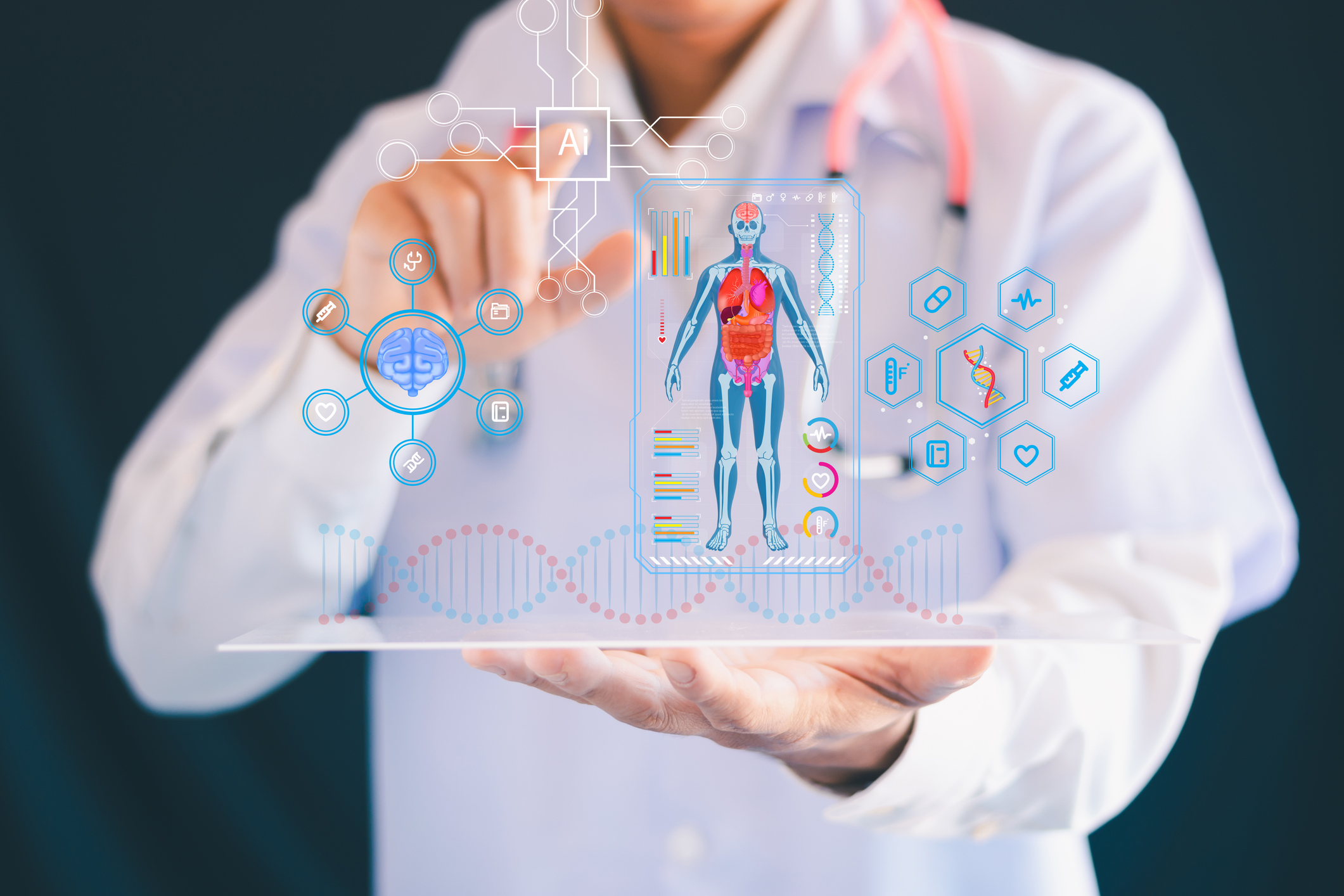Study warns of growing reliance on AI for health consultations in Colombia: What could be the reasons?

Colombia is not only among the countries where self-medication is most common, according to an Ipsos survey released in November 2024, but there is also now a growing use of artificial intelligence (AI) tools to consult on health-related topics.
This is revealed by a recent study conducted by the Nursing Program at Manuela Beltrán University, which shows how this technology is beginning to play an increasingly important role in the decisions people make about their well-being.

People are looking to AI for answers about their health. Photo: iStock
The report, titled "Use of Artificial Intelligence for Self-Medication: Perceptions, Habits, and Ethical Challenges in Digital Health Consultations," analyzed the behavior of more than 300 users in the country who turn to AI systems to learn about symptoms, medication effects, and possible treatments.
According to the results, three out of five respondents consider the information provided by these tools to be reliable or completely reliable , and 40% believe they could even replace a doctor in simple cases.
The risk lies in not having a clear role when asking questions, or in not ensuring an adequate prompt. Furthermore, a gap opens up
For the study's researchers, such as María Andrea Castro and Yina Rocío Hernández, this phenomenon demands a critical reading. "We must teach people to distinguish between what is merely informative and what is clinically guiding. AI should not replace professional clinical judgment," stated Yina Rocío Hernández.
Why do users turn to AI for answers about their health? 
People say they use AI for queries because of its speed. Photo: iStock
Among the reasons people said they consult an AI about their medical concerns instead of a healthcare professional are:
- Lack of financial resources (18.9%).
- Curiosity (27.6%).
Furthermore, according to the survey, the most frequent consultations are related to minor ailments, such as nonspecific physical pain, which was reported by 27.7% of the survey participants.
These are followed by questions about the flu, cold, or COVID-19, mental health-related issues, allergy/skin reaction treatment, and one that could be riskier, although less prevalent: a diagnosis inquiry.
However, it is striking that most people do not act immediately after receiving a digital recommendation: 56% prefer to do further research before making medical decisions, 25% end up seeing a doctor, and only 14% believe what the AI suggests directly.

Mental health is among the top three questions respondents ask AI. Photo: iStock
"These data reflect a significant trend toward self-management of health, especially in the face of minor or recurring ailments," explained researcher Castro.
And while AI could be a complementary tool, the expert was specific in pointing out that there are several risks to using it as it is: "The risk lies in not having a clear role when asking questions, or in not ensuring an adequate prompt. In addition, a gap opens up when losing the option of accessing humanized health services," Castro noted.
Also considered dangerous is a failure to interpret AI responses, as well as a failure to have complete physical examinations that help provide clues to diagnoses.
The implications of self-medication 
Self-medication can be problematic. Photo: iStock
On the other hand, it is noteworthy that 41% said they use AI to learn about the side effects or risks of medications, and 24% seek guidance on the dosage of a certain drug. However, the survey shows that the most frequently requested request is a recommendation for self-medication for mild pain.
Self-medication is a widespread practice in Latin America. According to the most recent Ipsos study conducted in 31 countries, the six countries with the highest self-medication rates are Brazil, Poland, Colombia, Argentina, Mexico, and Peru, with rates between 69% and 75%. Factors such as economic barriers and easy access to over-the-counter medications appear to be common causes.
In this context, the combination of self-medication with the use of artificial intelligence poses a new scenario for public health. Academia calls for promoting digital health education and responsible use of emerging technologies.
"Nursing has the mission of guiding this transition from a holistic perspective, ensuring that technology is used appropriately," reads one conclusion of the study.
eltiempo





